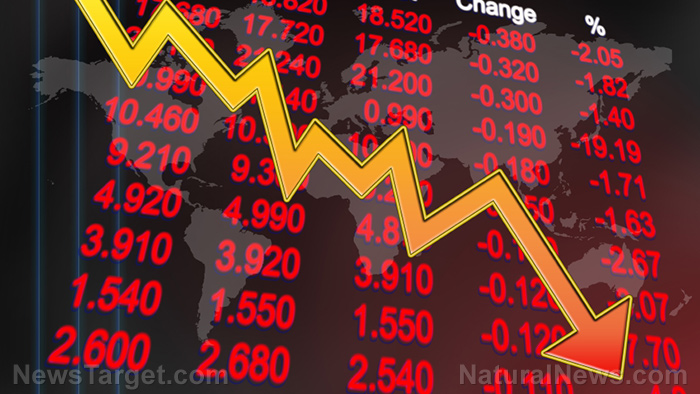
Figures from the Refinitiv Eikon financial analysis platform showed that Russia's seaborne diesel and gasoil exports increased by 11 percent in the first half of July, exceeding the 13 percent increase in June. Amid this development, Moscow is preparing to slash its oil exports by 500,000 barrels per day (bpd) in August to increase the availability of petroleum supply for domestic refining and fuel production.
Turkey and Brazil have stood out as the top destinations of Russian petroleum exports since the implementation of the European Union's (EU) embargo on Russian oil products. July shipping data showed Ankara receiving 631,000 tons of diesel and gasoil, and Brasilia receiving 300,000 tons. The previous month, Turkey received about 1.47 million tons of diesel and gasoil while Brazil received 350,000 tons of diesel. (Related: Russian oil exports surge despite Western sanctions, Moscow's output cut.)
Senegal and Morocco were also buyers of Russian fuels, purchasing 75,000 tons and 66,000 tons of diesel and gasoil from Russia, respectively. However, Togo only received 37,000 tons and Ghana 30,000 tons, which are lower than previous records.
Furthermore, 250,000 tons of unidentified cargo were intended for ship-to-ship (STS) transfers near Malta and the Greek port of Kalamata. Industry experts suggest that most of these unidentified Russian fuels are heading to Turkey and Middle Eastern countries based on their trading patterns.
However, the United Arab Emirates, one of the top destinations of Russian exports, maintained the same level in June with only 150,00 tons after receiving nearly 270,000 in May. Similarly, Saudi Arabia, which typically receives significant diesel shipments from Russia, shows no record for this month. Riyadh had one diesel cargo record in June, but no shipments were recorded this month.
IEA: Russia set to surpass Saudi Arabia as top crude producer
Meanwhile, the International Energy Agency (IEA) stated in its latest monthly oil market report that Russia is on the brink of overtaking Saudi Arabia as the leading crude producer within the Organization of the Petroleum Exporting Countries (OPEC). Riyadh is a founding member of OPEC, while Moscow is a member of the OPEC+ collective that includes the core founding nations and other oil-producing countries.
Based on the IEA's data, Saudi Arabia produced approximately 9.98 million bpd, while Russia stood at 9.45 million bpd last month. The agency's estimation indicated that the Saudi Arabia's total crude output will only dip to nine million bpd this July and August – the lowest production rate of the kingdom in two years.
This decrease is a result of Saudi Arabia's decision to extend its production cut to stabilize oil prices. Additionally, Riyadh announced an extension of its voluntary crude output cut of one million bpd until August. However, it creates an opportunity for Russia to emerge as the top oil producer within the OPEC+ group of crude exporters.
Concurrently, Russia declared a 500,000 bpd cut in its oil exports for the same period. Together, these production cuts will account for a 1.5 percent decrease in the global oil supply.
Saudi Energy Minister Prince Abdulaziz bin Salman emphasized the deep cooperation between Riyadh and Moscow as part of the OPEC+ group, and reaffirmed their commitment to supporting the stability of the oil market. This collaboration has led to voluntary reductions of 1.66 million bpd by some OPEC+ members from April until the end of 2024.
Follow FuelSupply.news for more stories about oil supply across the globe.
Watch Brannon Howse of "Worldview Report" talking about Russia's record-high oil export since April 2020.
This video is from the Worldview Report channel on Brighteon.com.
More related stories:
Russian oil still powers European vehicles, thanks to India’s refining capability.
Gas and diesel prices expected to increase as crack spread soars.
IEA report: Nearly 80% of Russian crude oil has been rerouted from EU to China and India.
Sources include:
Please contact us for more information.





















